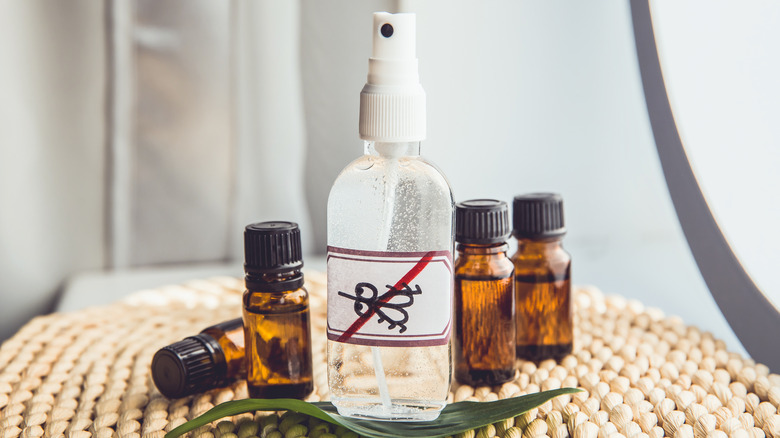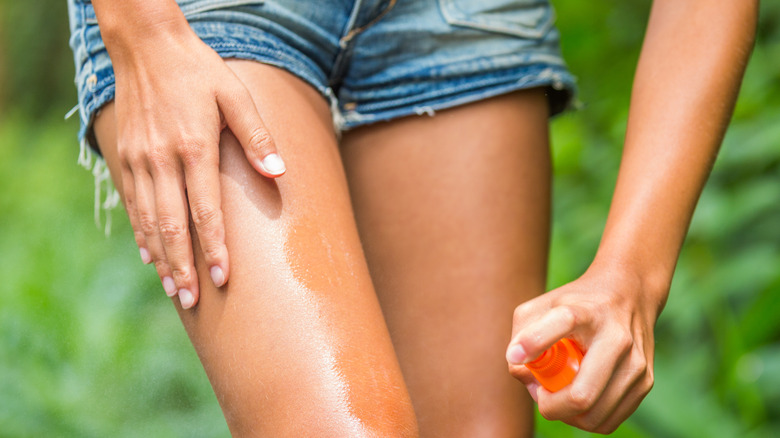Natural Insect Repellents You Need To Try
If you have sensitive skin or simply do not like the idea of putting harsh chemicals on your skin, this doesn't mean you have to suffer the wrath of insect bites. Diethyltoluamide, otherwise known as DEET, is one of the most common ingredients you will find in store-bought bug sprays and lotions. It was developed in 1946 for soldiers to use, and it is highly effective, according to the National Pesticide Information Center.
While DEET can repel several insects, including mosquitoes, it can be problematic. The compound can cause hives, swelling, and other skin irritations in some people, according to a 2014 study published in Allergy, Asthma & Clinical Immunology. Furthermore, inhaling or otherwise ingesting DEET can cause vomiting and nausea. In rare cases, the chemical has also been linked to seizures (via National Pesticide Information Center). If you are looking for more natural bug repellents, we have a few you can try.
Essential oils are effective at repelling bugs
Mosquitoes seem to be the most offensive insects, and one of the most popular natural repellants is lemon eucalyptus oil. The active ingredient in this oil is para-menthane-3,8-diol, and Verywell Health notes that it works by blocking odors on your skin that attract mosquitoes. To make a mixture, combine anywhere from 30 to 75% of the oil with a carrier oil, such as almond oil. Another popular natural repellent is citronella oil. A 2011 study published in Tropical Medicine & International Health suggests that when mixed with vanillin, citronella can prevent bug bites for up to three hours.
If you want to repel more than mosquitoes, lavender oil is an option, according to SF Gate. It wards off not only mosquitoes, but fleas, ants, and spiders. The active compound in lavender is linalool, which you can find in several over-the-counter bug sprays. You can apply a few drops of lavender directly on your skin or you can make a blend that includes almond or jojoba oil.

